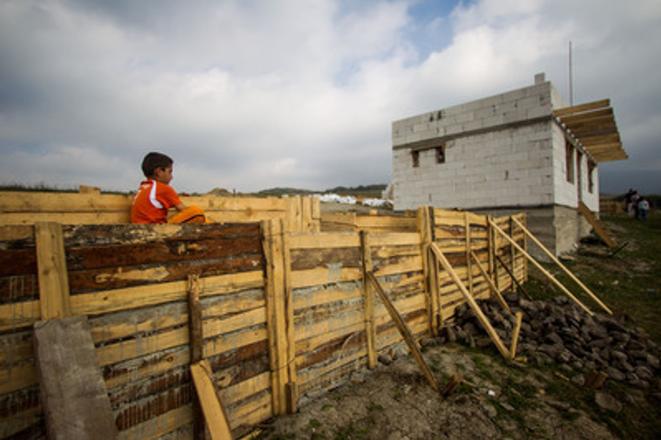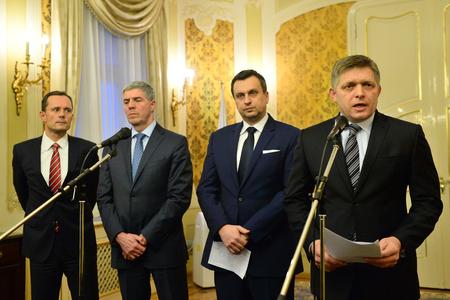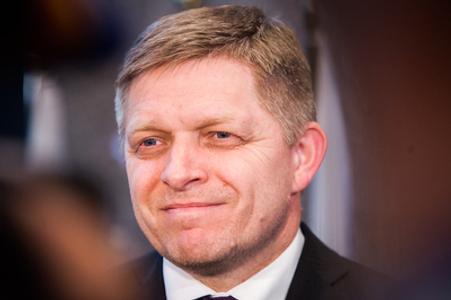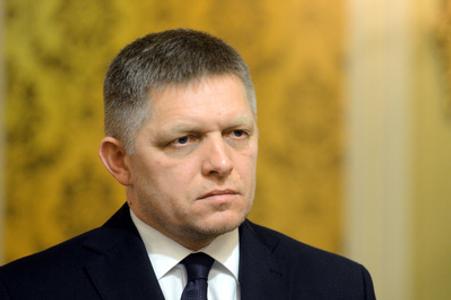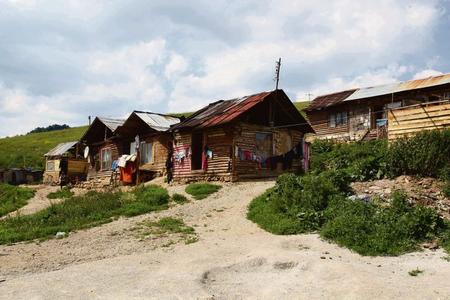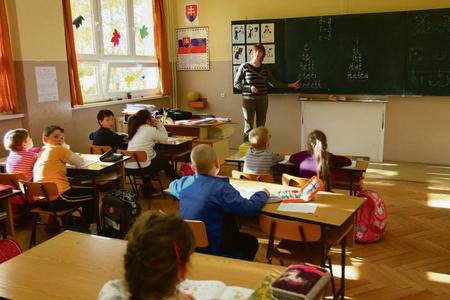Even now, when members of far-right People’s party Our Slovakia (ĽSNS), which has been gathering popularity on anti-Roma and anti-migrant rhetoric, are marching into the parliament, the new government still ignores these issues.
It stems from programme priorities of the new government which may be the basis for its programme statement that representatives of Smer, the Slovak National Party (SNS), Most-Híd and Sieť specified and inked on March 15.
“It seems like those parties haven’t understood the message of recent general elections,” Jarmila Lajčáková of the Centre for Ethnic and Culture Research (CVEK) told The Slovak Spectator.
When it comes to marginalised Roma communities there are no specific measures in the priorities, yet some MPs are clearly focusing on them. For example, parties plan to support job opportunities for people living in socially-excluded communities or enact stricter conditions for unemployed people to qualify for state welfare.
Regarding foreign and European politics, they stated that they want to continue in the pro-European and pro-Atlantic orientation of Slovakia, update the security and defence strategy and strengthen the care about foreign Slovaks. There is nothing about refugees or migrants despite the fact that Smer stated before elections that the opinion on this issue will be a basic condition for creation of next government.
“I don’t understand why program priorities lack a single mention about how government wants to deal with this problem, especially when considering the fact that this was one of the main pre-election issues,” Zuzana Števulová , the director of Human Rights League (HRL) told The Slovak Spectator.
Refugees spark conflicts
The government stance towards the issue of refugees is reflected in the first sentence of its programme priorities in which it writes about clear continuity in pro-European and pro-Atlantic orientation, according to Sieť’s deputy chair Andrej Hrnčiar.
Parties discussed the issue during negotiations but it was difficult to reach an agreement because Most-Híd demands cancellation of the Slovak refugee quota lawsuit against the EU which is the exact opposite of what other parties want. Moreover Most-Híd would accept more than 200 refugees which the previous government pledged to accept on a voluntarily basis, the Sme daily wrote referring to a politician participating in negotiations wishing to remain anonymous.
Expert on foreign issues of Most-Híd František Šebej did not say why refugees did not make it into the programme priorities because he did not participate in negotiations. However, he stated that his party will still pursue a milder approach toward refugees, as it did before the elections.
“We haven’t forgotten the difference between our approach and the approach of Smer and other parties,” František Šebej of Most-Híd told The Slovak Spectator. “We will insist upon civilising the [government’s] rhetoric and approach towards migrants.”
Nevertheless, it could seemingly be the impetus behind a potential battle between parliamentary parties; yet discussion about refugees does not necessarily need to cause huge conflict in the new government because several different opinions could result in a moderate approach, according to Hrnčiar.
Furthermore, programme priorities show that nationalist SNS which had been widely criticising NATO and the EU have resigned from this rhetoric and avoid the foreign policies issues, according to Milan Nič of the Central European Policy Institute (CEPI).
Preparing instead of ignoring
Programme priorities should reflect the current preparation of a new national integration programme for refugees and immigrants.
To this effect, the European Commission should present a draft concerning asylum system reform soon and V4 countries (Slovakia, Hungary, Czech Republic, Poland) have the opportunity to negotiate for the best conditions it can get. For example, the draft should deal with moving of migrants who register in border countries of the Schengen area, including Slovakia and then disappear from them.
“There is a proposal that huge asylum centres will be built in border countries,” Števulová said. “One of them could even be in Slovakia which would bring us new job positions and prestige of the country abroad.”
At the same time the government’s rhetoric toward migrants should improve and depart from the current habit of describing the situation worse than it really is, according to Nič.
“Prime Minister Robert Fico disserved Slovakia with his rhetoric,” Nič told The Slovak Spectator. “It was a big problem to explain to our partners that we are not Hungary [widely condemned for its strict anti-migrants approach].”
It cannot be said how the government’s parties will face these challenges, according to analysts.
“I don’t know if it was discussed during negotiations but I know that [Most-Híd head] Béla Bugár and [party’s deputy chairman] Lucia Žitňanská have not changed their opinion on this issue and they don’t consider it to be unimportant,” Šebej said.
Repression may continue
When it comes to the issue of marginalised Roma communities, analysts mostly pointed to the plan to make stricter rules for providing material need allowances for people unwilling to work. It means that government will continue with its repressive policy towards marginalised Roma despite the fact that it has not been working in recent years, according to them.
The previous Fico government passed a bill saying that the state will pay the basic material-need allowance of €60.5 per month only to eligible adults who did not refuse the opportunity to work at least 32 hours each month doing community service jobs or voluntary work. The bill’s purpose was to incentivize working habits for long-term unemployed people and change people’s opinion about Roma unwilling to work, but had exactly the opposite effect, according to Lajčáková.
“It recalls 2013 when Marian Kotleba won in regional elections and all [politicians] were competing to see who will introduce stricter measures against Roma,” Lajčáková said. “Political parties spin the circle of who will be harder on minorities but this game has apparently only one winner.”
It seems like some politicians imagine Roma like people who have dozens of job invites but they refuse them on a daily basis, she added.
Vague priorities
Other programme priorities which could affect marginalised Roma include combatting usury, unspecified changes in the school system, decreasing unemployment or improving education against extremism. None of them, however, contain specific measures.
“A plan to create 100,000 jobs could be a measure for 100,000 Roma or for zero Roma,” Laco Oravec of Milan Šimečka Foundation told the Slovak Spectator. “They are not even able to name the group which those measures target.
Also Government Proxy for the Roma Communities Peter Pollák criticises the document.
“Government’s programme priorities don’t contain any solutions to Roma issues and they indicate that political parties constructing this government have not shown their will to deal with this issue in this document on a governmental level,” Pollák wrote in his press release.
Focusing on Hungarians
When it comes to the topic of minorities, the government’s priorities are to create a fund for financing culture of minorities and improving the observing of legislation on language use of minorities. Additionally, teaching methodology of Slovak language at minorities’ schools should change so children who do not have Slovak as their mother tongue can learn it better. The last measure is to cancel the threshold of the minimum number of students which a school must have for its existence in regions with mixed nationalities.
Some of those points are clearly Most-Híd pre-election promises targeted at the Hungarian minority in Slovakia, but all those measures do not reflect the width and complexity of minorities' issues, according to Oravec.
Lajčáková agrees saying that priorities focus mainly on the Hungarian minority but do not deal with the issues of Roma or refugees.
“For example, the change of Slovak language teaching would be proper also for regular schools, not only those which focus on minorities,” Lajčáková said.
Human rights need their head
One of the biggest problem of minorities and human-rights issues in Slovakia is that the state system which was dealing with those questions was dismantled by personnel and institutional changes. For example, parliament cancelled the post of deputy prime minister for human rights and national minorities in 2012. Moreover, the government proxy for minorities has weak powers and the post is not occupied, according to Oravec.
In its reaction to programme priorities, Pollák sent to parties in the government a list of measures for helping marginalised Roma which they should adopt, adding that Slovakia can draw €380 million from EU funds by 2020, therefore money should not be a problem.
“By ignoring the problems of hundreds of villages which are currently dealing with issues in Roma communities we are creating an environment for the increase of radial and extremist groups in the country,” reads Pollák’s statement.


